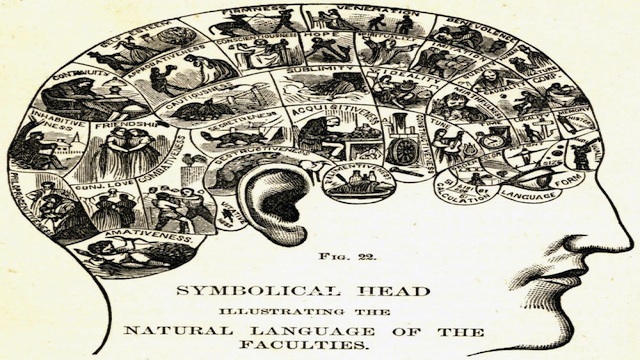Should the Federal Government Bail out Detroit?

Last week, a move to prohibit the federal government from coming to the aid of financially strapped American cities came two votes short of passage in the Senate. Lindsay Graham, the Republican sponsor of the measure, was aiming to prevent congressional action to “bail out Detroit or any American city that mismanages its public finances.”
Here is Ron Johnson, Republican senator from Wisconsin, on why such a prohibition should be adopted:
American taxpayers need to watch their wallets. Next will come a call for a federal bailout to alleviate Detroit’s pain. Congress should act now to ensure taxpayers aren’t forced to pay for decades of mismanagement by liberal politicians and public sector unions.
Detroit’s failure is rooted in an unholy alliance between politicians and public sector unions. Its 47 municipal unions spent their members’ dues to elect public officials who then “negotiated” with those same unions for overly generous contracts that resulted in bankruptcy. The city’s emergency manager laid out the gory details in a settlement he offered to creditors last month. Health benefits to the city’s 19,000 retirees are lavish and unfunded. The city acted too late to reduce staff numbers bloated by union work rules — for example, last year it was discovered the city water department employed a horseshoer for $56,000 a year, though it owned no horses. Unions won “sweeteners,” like extra pension checks and easier pension eligibility, that increased costs without benefiting the general public.
In response, Michigan politicians have leapt to Detroit’s defense. Debbie Stabenow, Democratic senator from the state, declared these proposals “partisan politics at its worst.” Carl Levin, Stabenow’s senior colleague, said Detroit “is surely entitled to seek federal funding from existing programs”:
The approach a few senators have taken, raising the specter of a bailout in pursuit of some perceived political advantage, is an unfair and unbecoming potshot at our city and its people that I will strongly oppose.
This debate over Detroit’s bailout is strangely otiose: the Obama administration has turned a cold shoulder to the idea, and no one in Congress has proposed such a thing. Nor has Detroit requested one.
Leaving aside the merits or disadvantages of federal relief for financially troubled cities, the nature of the GOP’s abortive pre-emptive strike against the very concept is, to put it gently, morally troublesome.
Consider what the amendment would not have done:
Government assistance, however, would be allowed in cases of natural disasters, such as hurricanes. Earlier this year, hundreds of millions of dollars in disaster loans issued in the wake of Hurricane Katrina in Vitter’s home state of Louisiana were forgiven by Congress.
Federal bailouts of cities wrecked by acts of God would speed through Congress onto the president’s desk. But cities destroyed through the mismanagement of their leaders would not be so lucky. Detroit residents are complicit in the disgraceful state of their city, the amendment implies, because they profited from a criminally insane pension system and “lavish” health benefits offered to them by unions and corrupt politicians they put, and kept, in office. Those reckless pensioners (earning an average pre-austerity pension of $19,000) should not be saved from themselves by American taxpayers in more responsible locales.
The suggestion carries racial overtones. The city of Detroit needs to lie in its own poorly made bed; the rest of the country cannot be expected to pony up for the myopic misdeeds of the lazy and the shiftless.
But leave quiet racism aside. There are bigger moral problems with the GOP’s barely concealed animus toward the people of Detroit. The moral principle at work in the distinction between natural disasters and man-made disasters is the crassest version of the luck-egalitarian idea that while the government should help you out if you fall ill or suffer a freak accident through no fault of your own, you should be held responsible for the consequences flowing from your consciously undertaken decisions. Elizabeth Anderson, a MacArthur fellow at the University of Michigan, persuasively refuted this family of theories in a 1999 article:
Consider an uninsured driver who negligently makes an illegal turn that causes an accident with another car. Witnesses call the police, reporting who is at fault; the police transmit this information to emergency medical technicians. When they arrive at the scene and find that the driver at fault is uninsured, they leave him to die by the side of the road.
“This action is just,” according to luck egalitarians, Anderson wrote, because the state has “no obligation to give him emergency care.”
Anderson’s alternative conception of egalitarianism focuses on what citizens need to live decent lives in a community of mutual respect, rather than who is to be blamed for what. Here is how she critiqued the luck egalitarians who would let the uninsured motorist bleed out in a ditch:
Let us pause to consider whether these policies express respect for citizens. Luck egalitarians tell the victims of very bad option luck that, having chosen to run their risks, they deserve their misfortune, so society need not secure them against destitution and exploitation. Yet a society that permits its members to sink to such depths, due to entirely reasonable (and, for dependent caretakers, even obligatory) choices, hardly treats them with respect. Even the imprudent don’t deserve such fates.
There are perfectly good reasons why the federal government might not offer a bailout to the city of Detroit. The budget crunch in Washington is certainly one salient factor. Another is the issue of moral hazard: if municipalities around the country can turn to the federal government whenever their finances go south, cities will have much less reason to manage their money effectively and make tough but crucial budgetary decisions. In any case, neither the executive nor the legislative branch appears anxious to throw money at Michigan’s once-famed city. So it is particularly odd that the GOP would seek to push through a proposal banning such a move. Odd and morally suspect. It’s a huge stretch to blame ordinary Detroiters for the imprudence of their city’s municipal government. The GOP claim that Detroiters damned themselves and should bear the brunt of their city’s mismanagement is moral reasoning at its very worst.





